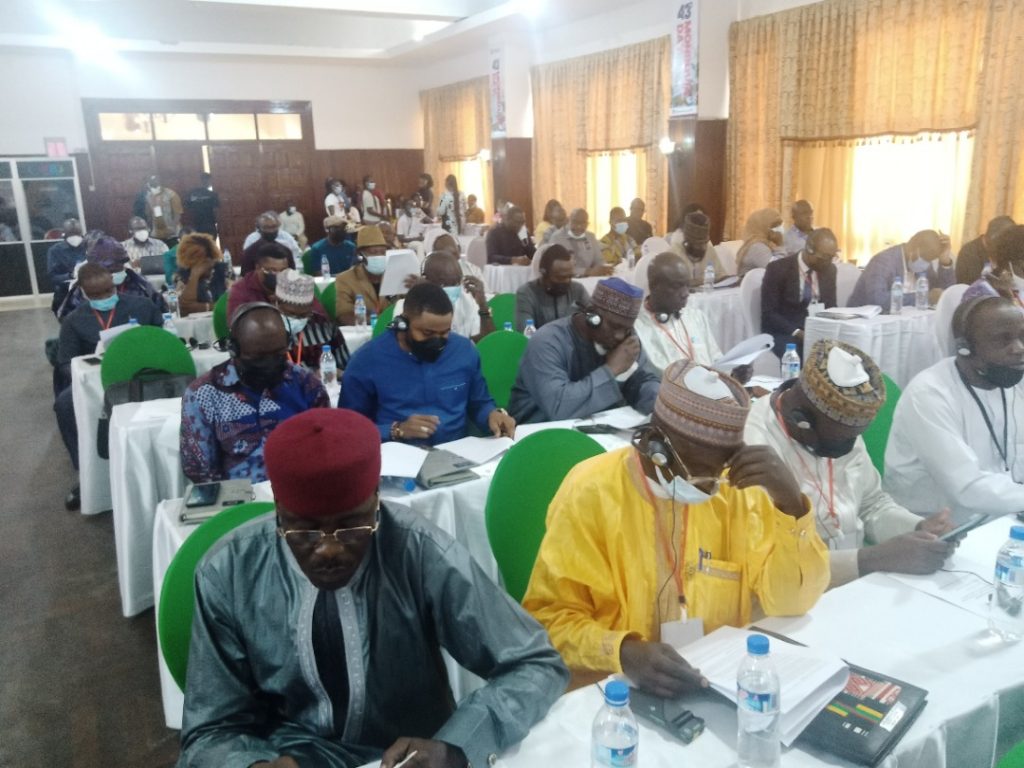Three Experts make presentations on the ECOWAS Vision 2050
The Parliamentary Seminar on ECOWAS Vision 2050 began on Thursday 3 March 2022 in Monrovia.
Three experts from the Inter-Governmental Action Group against Money Laundering (GIABA), (an ECOWAS institution), Dr. Muazu Umar, from the Centre for Research and Support-Advice for Development (CRAD), Prosper Houssou, and from the Centre for Economic Policy Analysis (CAPEC), Prof. Alban Alphonse Ahoure, presented five papers to the Parliamentarians, followed by questions and contribution.
The MPs listened to and discussed the formulation process and challenges of implementing ECOWAS Vision 2050; the results of the evaluation of ECOWAS Vision 2020; the convergence between ECOWAS Vision 2050 and the 2030 Sustainable Development Goals (SDGs) and the African Union’s Agenda 2063; the monitoring and evaluation mechanisms and the periodic review of Vision 2050; and finally, the funding of this prospective programme.
By lifting a corner of the veil on the elaboration methodology, search for funding, implementation process, monitoring and evaluation of the ECOWAS Vision 2050, these presentations contributed to a better understanding of this promising prospective programme of the fifteen Member Countries for the next thirty years.
Since its creation in 1975, ECOWAS has played a crucial role in the management of numerous political crises, in the resolution of conflicts and in the consolidation of peace and democracy, particularly through the various instruments and mechanisms developed in the area of peace and good governance.
ECOWAS has also made significant progress in terms of economic and monetary integration, including the process of consolidating the common market with, particularly, the free movement of persons and goods, the trade liberalization scheme and, above all, the creation of the Customs Union, materialized by the entry into force of the Common External Tariff (CET).
The final objective of ECOWAS Vision 2050 is to consolidate these achievements in order to build an area of peace and prosperity for all in West Africa.



